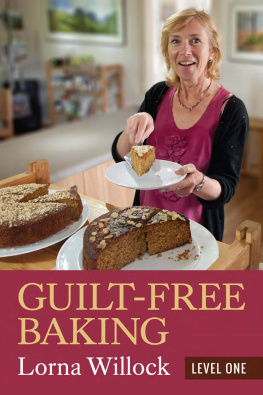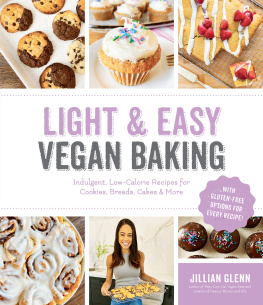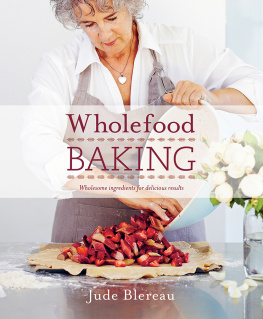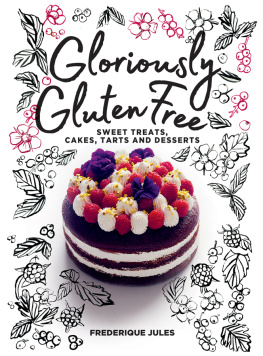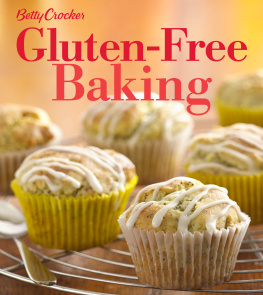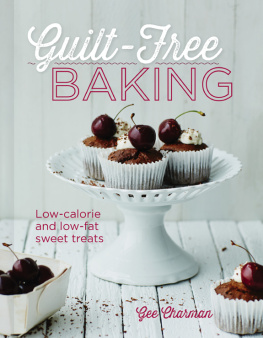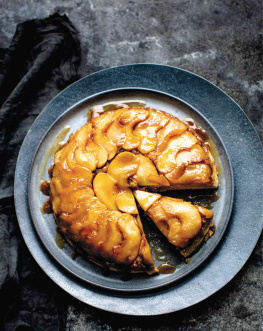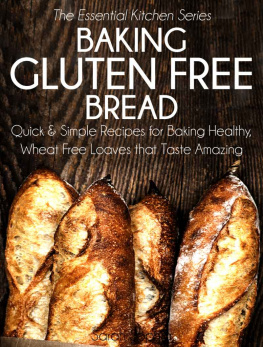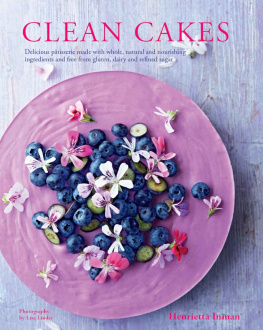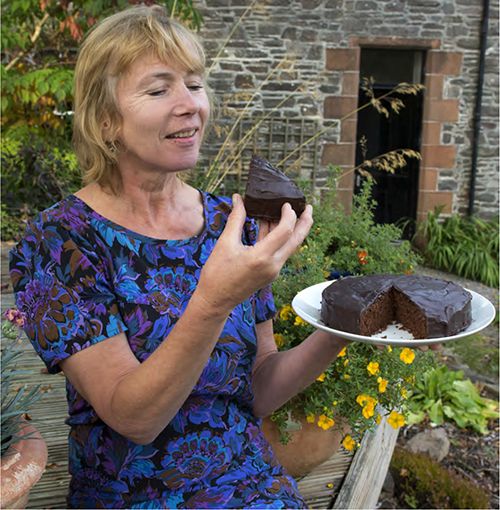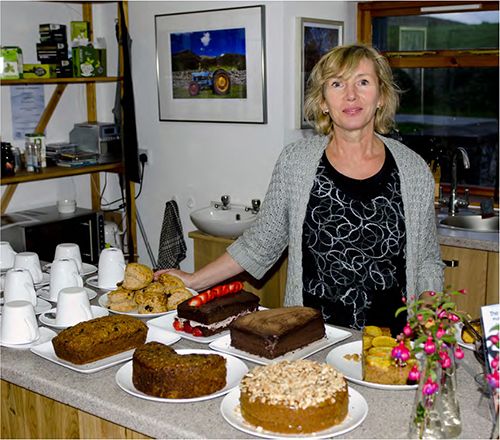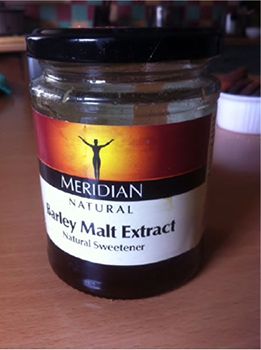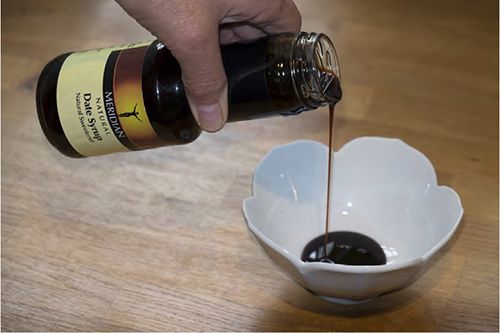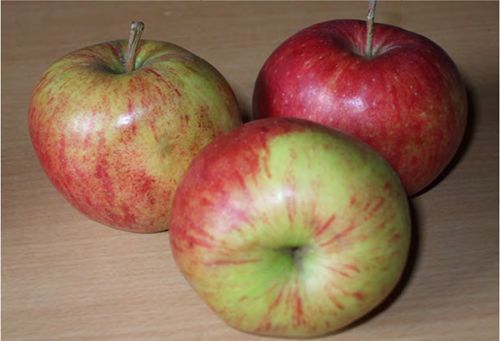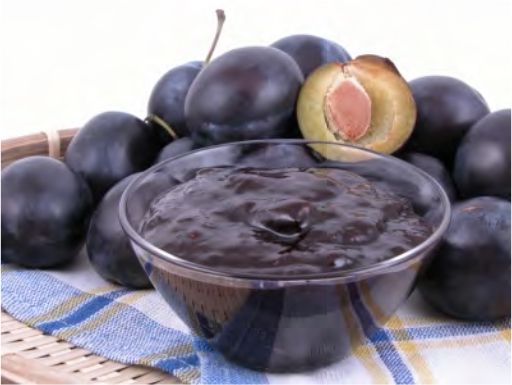I hope you enjoy trying out the recipes in this book. If you are interested in seeing more of what I do then take a look at my website:
www.lornasfoodclinic.co.uk
My other contact details are:
https://www.facebook.com/THEFOODCLINIC
Email:
Twitter: foods4life
Mobile: 07703 303805
CONTENTS
Origins
I work as a nutritionist and dietician specialising in food intolerances and am based in South-west Scotland. This baking book originated from the fact that my partner Allan decided to open a gallery to showcase his photography and when people are viewing for a while a cup of tea and some baking gives a little added value hence the gallery/caf was born.
Ive always loved baking and started when I was eight. I made tablet and then moved on to other baked goods such as millionaires shortbread, sponge cakes, gypsy creams, cream sponges, etc.
All the recipes were full of fat and sugar with nothing that could be regarded as healthy in sight. As a result I became a bit of a sugar addict! Now I have a different view on my baking. I consider baking as something that needs to be very wholesome and packed with plenty of vitamins and minerals. White, refined baking is definitely a thing of the past!
As a nutritionist, the challenge I set myself in the caf was to supply bakes that could be regarded as delicious whilst supplying decent nutrition. This is not extreme baking which could and possibly would exclude sugar completely and/or wheat flour in this book at this level I do use butter and some sugar, but the sugar I use is the dark brown variety. During this journey my baking techniques will become more extreme but the results will remain delicious to eat!
I also use alternatives for sugar, e.g. malt extract, agave syrup and/or blackstrap molasses. I usually substitute white flour with other types of flours, though in some cases I may use 50:50 white to wholemeal. The quality of your flour is imperative to producing quality baking. Avoid bleached flour and any baking product that has been bleached.
Basically, it is the quality of the ingredients that is of utmost importance so I would suggest using organic when you can and if using fruit, e.g. lemons, ensure that they are organic and not waxed. I do not state organic in every item of every recipe but you can take it as read that it will be a better quality end-product if you can source all your ingredients organically.
Take an egg as an example of an important ingredient. An organic free-range egg is a totally different product to an egg that has been laid in a barn-style hatchery where the hen has very little room to move. This hatchery bird will be fed a lower-grade food possibly with additives to stop disease from spreading under these conditions. A organic free-range egg is produced by hens getting quality feed and will contain omega 3, an essential fat.
I aim to change tastes for baking so the reader moves towards the more wholegrain flavours and I plan to do this slowly, hence the Level 1 aspect of this book. My plan for recipes will become more radical (but no less delicious) as the series moves onward. Anyone who likes to bake can come along on this journey and then learn to alter their favourite recipes.
Thank you so much for sharing this journey with me.
Ingredients
Nutritious options to white sugar
Agave syrup This an alternative sweetener that can be used in place of maple syrup or sugar in cooking and baking recipes. It is derived from the agave plant and has a higher ratio of fructose to glucose than most sweeteners. Therefore it has a lower GI and is a good substitute for people who are watching their blood sugar levels.
Barley malt extract This contains some vitamin A and riboflavin (a B vitamin). It also raises blood sugar levels fairly quickly!
Brown sugar Available in both light and muscovado (warm the latter a little when using). Muscovado is quite dense and doesnt always mix in well when making a sponge cake. If it is gently warmed first it will mix through much more easily. It is easier to use in loaf-style recipes as most of these involve the melting of ingredients.
Concentrated fruit syrups, e.g. apple, pear, etc. These will provide sugar but are also high sources of fructose sugar.
Date syrup Again giving sweetness via the natural form of date extract. This is really good for people who tend to suffer constipation and is really tasty drizzled onto porridge. It would be an optional sweetener to use when baking a date and walnut loaf.
Fresh fruit (chopped), e.g. apple in apple cake or pancakes, pear in pear frangipani tart.
Fructose This fruit sugar has a relatively low GI compared with sucrose and can be used instead. It is however still a refined product and therefore doesnt supply many vitamins and minerals.
Honey Find a good quality one, as many cheap honeys are similar to refined sugar and provide no health benefits. Organic raw honey is a wonderful product and many honey farmers produce great quality honey in small quantities. You could also use Manuka honey as it has a great antibacterial effect it is very good for treating sore throats.
Maple syrup Another natural sweetener for porridge and pancakes.
No added-sugar jams, e.g. Meridian pear and apple spread or St Dalfour and Meridian jams. These could be used to fill the middle of a cake or as decoration on top. The blackcurrant version has particular eye appeal as it contains whole blackcurrants. The Meridian spreads can also be used instead of sugar in a recipe.
Stevia Stevia is a South American herb used as a natural sweetener. The leaves of the Stevia rebaudiana plant have no GI rating, no calories and no carbohydrates. It is much sweeter than sugar without the calorific value.
Unsulphured blackstrap molasses This also has a reasonably low glycaemic index (GI) though it is not diabetic friendly. This means that the glucose and carbohydrates are metabolised fairly slowly, demanding less insulin production, therefore keeping blood sugar levels reasonably stable. With a fairly high iron content blackstrap molasses has been used for people with anaemia. Iron is necessary for the creation of red blood cells. Other nutrients that blackstrap molasses contain are folate, a natural source for folic acid and other B vitamins, which are helpful nutrients for providing energy. It contains both magnesium and calcium, important for bone production and for energy.
Potassium is another mineral abundant in blackstrap molasses. A deficiency in potassium results in weak muscles and is also important for the nervous system and heart health.

